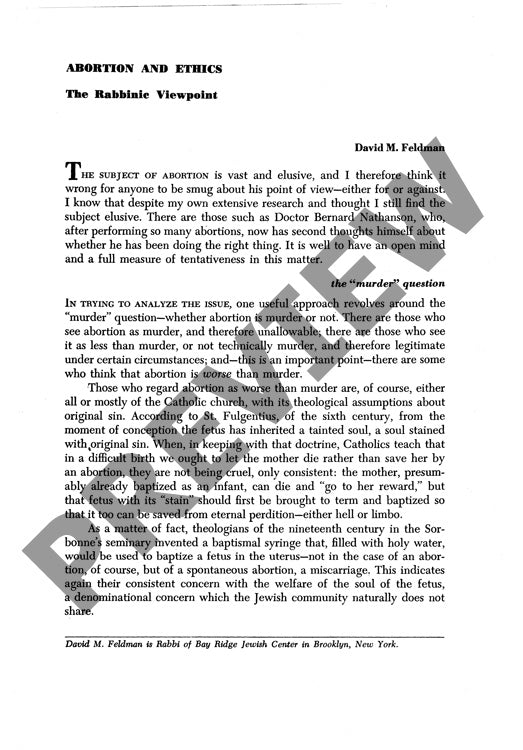Abortion and Ethics the Rabbinic Viewpoi
Couldn't load pickup availability
Jewish law charts a distinctive middle path on abortion ethics, neither embracing absolute prohibition nor casual permissiveness. Through analysis of Talmudic texts, particularly a pivotal mishnah on difficult childbirth, a clear contrast emerges between Jewish and Catholic approaches to reproductive rights. While Catholic theology may view abortion as worse than murder due to original sin doctrine, rabbinic tradition considers it morally significant but not technically murder. The investigation employs comparative analysis of theological and legal frameworks to reveal how Jewish law differentiates between an absolute "right to life" and a relative "right to be born." This distinction allows abortion until birth when maternal welfare is threatened, while strictly prohibiting harm to the emerged child. Maternal considerations - including physical and mental anguish - provide legitimate grounds for termination, whereas fetal indications alone prove insufficient. The rabbinic perspective ultimately prioritizes women's welfare in reproductive decisions while maintaining abortion's gravity as a profound moral choice, offering contemporary bioethics a model that balances competing rights and obligations.

More Information
-
Physical Description
-
Publication Information
Published 1975
ISBN
-
Publication Credits
David Feldman

